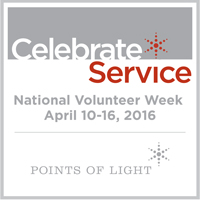April 6, 2016 – While Wisconsin lawyers were shivering last January, I flew to Monrovia, Liberia, to participate in an anti-human trafficking training for 60 Liberian prosecutors, public defenders, and judges.
 Cynthia Hirsch, DePaul University College of Law 1980, is a former assistant attorney general with the Wisconsin Department of Justice. She currently serves on the faculty of the National Association of Attorneys General, training assistant attorneys general around the country, and was named Faculty of the Year in June 2015. She serves on the State Bar International Practice Section Board.
Cynthia Hirsch, DePaul University College of Law 1980, is a former assistant attorney general with the Wisconsin Department of Justice. She currently serves on the faculty of the National Association of Attorneys General, training assistant attorneys general around the country, and was named Faculty of the Year in June 2015. She serves on the State Bar International Practice Section Board.
As a trainer with Lawyers Without Borders, I spent a week discussing both litigation strategies and policy concerns with my new Liberian colleagues focused on their newly enacted human trafficking legislation.
After meeting with the President of the National Association of Trial Judges of Liberia, Judge Roosevelt Willie, and observing their courts in action, we 10 volunteer lawyers launched into a training workshop in which we taught and discussed trial practice skills such as opening statements, closing arguments, direct and cross-examination and specific evidentiary concerns. All of the workshops were presented in the context of a mock trial case, regarding a prosecution under their new human trafficking law.
My new Liberian friends told me that their legal education does not usually include such practical experiential training, and they typically learn to litigate by jumping in to the courtroom arena. They seemed appreciative of our effort to bring them this weeklong workshop, designed in the training style of the National Institute of Trial Advocacy (NITA). Of course, we benefited and learned as much, if not more, than they did.
Attention to the Rule of Law
The International Practice Section Invites You to Hear Cynthia Hirsch
The State Bar International Practice Section invites you to hear Attorney Cynthia Hirsch talk about her recent work in Liberia with Lawyers Without Borders.
Hirsch will speak at 5:30 p.m. Tuesday, April 19, 2016. Come at 5 p.m. for light beverages and appetizers. The program will be held at the Sheldon Lubar Commons, Room 7200, U.W. Law School, 975 Bascom Mall, Madison. Registration requested; to register, contact Megan Zurbriggen at mzurbriggen@wisbar.org.
Liberia has a major connection to the U.S. In the early 1800s, freed slaves were sent by the ship-load to Liberia. These individuals and their descendants constituted an educated elite who governed Liberia for more than 100 years until a military coup in 1980. A series of violent conflicts followed, destabilizing the country until 2005, when the current President Ellen Johnson-Sirleaf was elected in what many would characterize as Liberia’s first fair election. She has managed to collaboratively bring peace and democracy to this small but very proud country.
Because poverty is both a cause and a result of human trafficking, Liberia is particularly vulnerable. As one of the world’s poorest countries, conditions exist which provide traffickers with opportunities to recruit and transport victims. Common circumstances in Liberia include: forced work in diamond mines and rubber plantations, domestic servitude or slavery, forced organ removal, fraudulent adoption, and sexual exploitation for necessities such as food and school fees.
The Liberian Constitution, along with the United Nations treaties to which they are signatories, guarantee the Liberian people all of the same basic rights that we appreciate in the U.S. However, a limited infrastructure and drastically diminished resources create challenges to implementing proper courtroom procedures and guaranteeing these precious rights. In a country that struggles with a 50 percent literacy rate and extreme unemployment and poverty, a well-run legal system respectful of fair procedures and guaranties seems almost out of reach. Yet, with both pragmatism and optimism, these professionals came to our workshop, engaged with us and displayed earnest efforts to improve their system and skills. Best of all, we laughed together a lot … as lawyers with more of a common language and perspective than I might have expected.

At our meeting, Judge Willie thanked us for coming to Liberia with this training program. He commented on the importance to his country of attention to the rule of law. Without that attention, he said, corruption and mistrust will undermine peace. He believes that attention to rule of law, within a properly managed court system, will lead to a sustained peace.
Lawyers Without Borders is a nonprofit organization that relies heavily on volunteer lawyers to, as their motto states, “cross borders to make a difference.” Their staff and volunteers did an excellent job of creating materials that prepared us to better understand Liberia’s history and the cultural and economic challenges it faces. In addition they prepared detailed materials that we brought with us to distribute as resources for the participants. If you are interested in knowing more about this exemplary group, contact them at info@lwob.org.
